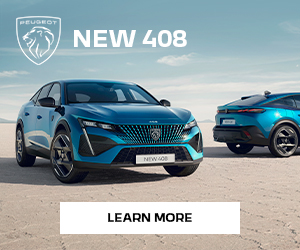SHELL MALAYSIA Pushing For ‘Smarter Mobility’ To Meet Fuel Efficiency Challenges Of The Future
Mobility – the movement of people and goods – is the lifeblood of our economy; enabling trade, unlocking economic growth and ensuring we all have access to basic needs and consumer goods.
According to the International Energy Agency (IEA), road transport alone accounts for around 17% of global energy use and energy-related carbon dioxide (CO2) emissions.
By 2050, the number of cars is set to triple to two billion while the number of trucks is expected to double. The demand for diesel, the main fuel of commercial vehicles, is also expected to grow by 35% between 2010 and 2035.
Shell believes that its ‘Smarter Mobility’ and innovative products approach would enable it to better meet such fuel efficiency challenges of between now and 2050. The approach focuses on finding innovative ways to help move the world’s growing number of people and goods safely, cost-effectively and with reduced impact on the environment through the use of ‘smarter’ products, infrastructure and use.
According to Dr Richard Tucker, the General Manager of Commercial and Industry Fuels and Lubricants Technology at Shell, the three major challenges faced by the global transport industry were the need to make energy work twice as efficiently as it was now, cut CO2 emissions and ensure a diverse supply of energy, especially from renewable sources.
“As the internal combustion engine is unlikely to be replaced substantially by alternatives in the next 15 to 20 years, we need to work even more smartly with the fuels and lubricants that power today’s vehicles,” he said.
For the transport industry, the latest ‘smarter’ and innovative product offerings for heavy duty diesel vehicles such as the synthetic-technology Shell Rimula R5 LE engine oil and Shell FuelSave Diesel represented Shell’s most advanced fuel economy technology to date in Malaysia.
As fuels can account for up to 30% of costs of a fleet business’s operating cost, commercial vehicles must be able to withstand high workloads and demanding work cycles, while maintaining efficiency. Therefore, fuels and lubricants must help lower the cost of ownership, reduce vehicle maintenance costs, extend vehicle life and meet industry standards.
Both the Shell Rimula R5 LE engine oil and Shell FuelSave Diesel are designed to help transport operators reduce the fuel consumption of their fleet. Internal Shell tests as well as customer field experiences have shown that both products can deliver fuel economy benefits through improved engine efficiency.
Shell Rimula R5 LE provides Energised Protection in three critical areas – protecting against wear, acid and deposit build-up. As one of the products in the Shell Rimula range formulated to help promote fuel efficiency, the 10W-40 viscosity grade of Shell Rimula R5 LE has demonstrated fuel economy savings of up to 1% per recent in on the road field trials of medium duty trucks (for highway cycles, compared to a typical 15W-40 oil).
With its combination of synthetic blend base oils and advanced additive system, it delivers excellent protection and longer oil life due to its enhanced oxidation control and continuous wear protection. It also exceeds the requirements for API CJ-4 and the recent ACEA E9 specification for compatibility with the latest engines and exhaust emissions control systems. Shell Rimula R5 LE also delivers the extended oil drain interval performance demanded by transport operators in order to maximise fleet utilisation and reduce operating costs.
Shell FuelSave Diesel is the company’s most advanced fuel economy diesel to date. Its unique formulation is designed to prevent the build-up of fuel system deposits, helping to keep fuel injectors clean and thereby promoting more optimum combustion. This can help to maintain engine efficiency in the long term, which can in turn lead to reduced fuel consumption and lower fuel-related vehicle exhaust CO2 emissions.
Internal Shell tests in heavy-duty engines typically used in road transport vehicles have shown fuel savings of up to 3% compared to regular diesel without fuel economy formula. Customers worldwide have also experienced the benefits of Shell FuelSave Diesel including Malaysia. Shell FuelSave Diesel is also designed to help transport operators make the most of their vehicles by helping to protect critical fuel system components from corrosion and to reduce foaming when refueling for a faster, more complete fill with reduced risk of spillage.
Dr Tucker pointed out that there was no ‘silver bullet’ solution to the challenges posed by some 900 million vehicles and 100 years’ worth of infrastructure. Instead, the future of energy provision would be in the form of an ‘energy mosaic’ comprising biofuels, liquefied natural gas, electricity and hydrogen.
Gas, in particular, has an increasing role to play as it is an abundant and cleaner burning resource. Shell has already made a head-start in this area. Its Pearl Gas-to-Liquids (GTL) plant in Qatar already makes a wide range of synthetic oil products from natural gas, helping diversify the supply away from crude oil.
Dr Tucker explained that Shell’s ‘Smarter Mobility’ approach also meant working in collaboration or ‘co-engineering’ with original equipment manufacturers (OEMs) such Ferrari, Daimler, Ducati, ZF, Schaeffler and a number of Chinese companies to ensure that the fuels and lubricants used achieve the highest levels of efficiency. Lubricants then become a design parameter alongside the equipment.
“We have over 4,000 equipment manufacturer recommendations or approvals across our entire product range. We have the opportunity to take insights, collaborations and technological capacity from deep level collaboration with these manufacturers to build a world of Smarter Mobility,” he added.
Shell is a global leader in the development of fuel-efficient engine oils, and the world’s number one lubricants supplier. Shell also has over 100 years’ experience in fuels innovation and continuously invests in research and development. This allows for innovations in state-of-the-art solutions that can offer tangible benefits to customers, both for their vehicles and their business.

















